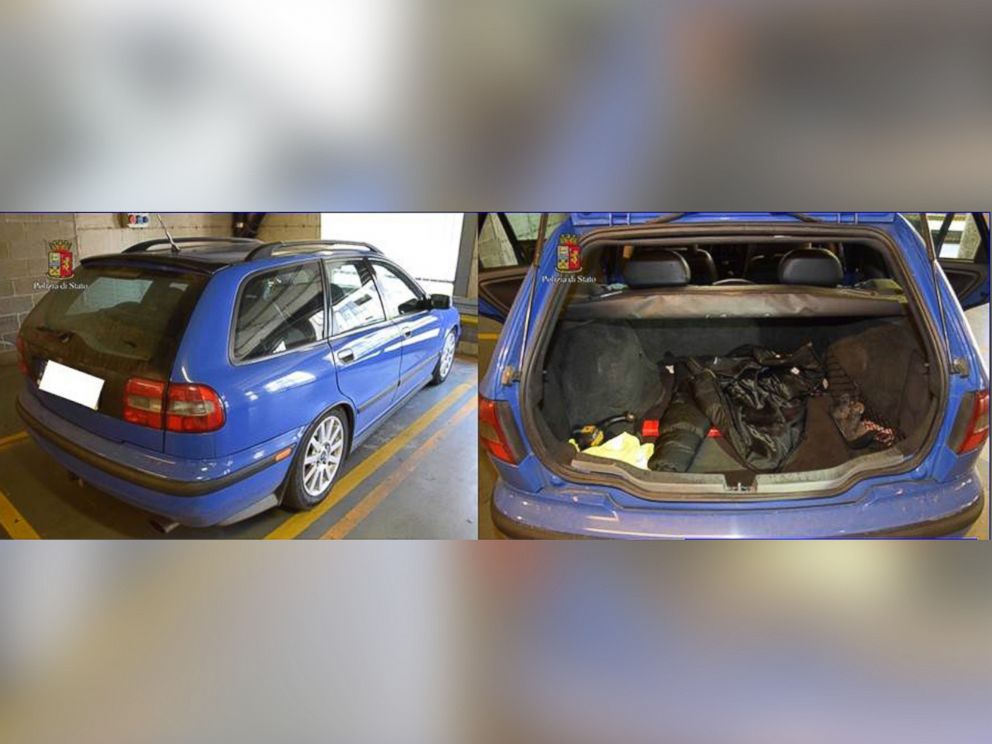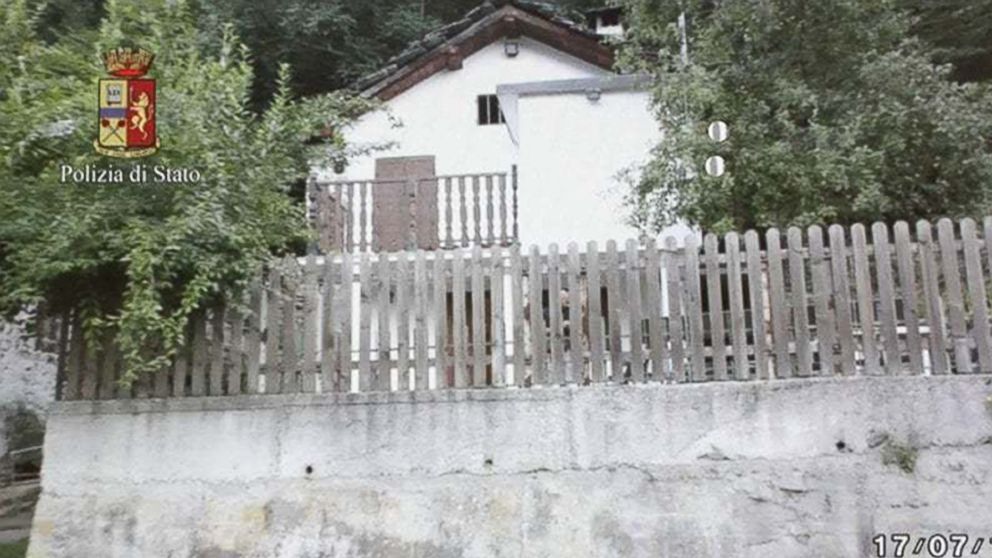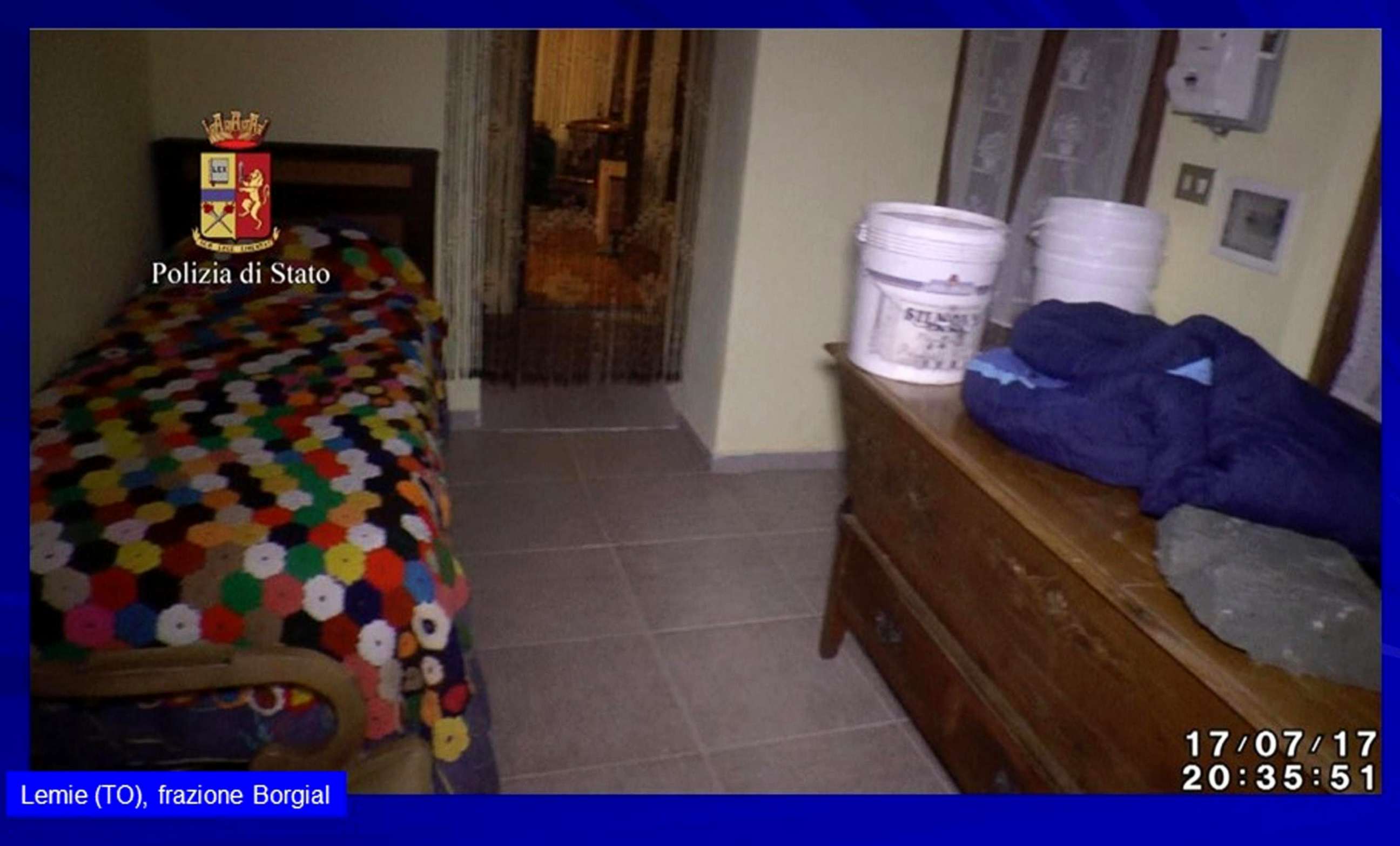What we know about the 'deep web' kidnapping of a 20-year-old British model
Computer equipment, seized from a suspect, is being analyzed by British police
— -- New details are emerging this week about a complex criminal case in Italy involving a 20-year-old British model who says she was drugged and kidnapped in an alleged effort to auction her off on the so-called "deep web" last month.
Here's what we know about Chloe Ayling and the investigation currently underway into who allegedly abducted her, how it was allegedly conducted, and to what end:

A modelling job gone horribly wrong
According to the account Ayling gave to police, on July 10 she touched down in Milan for a photography job, which was requested through her agent.
It's unclear at this time what kind of job Ayling and her agent believed she would be doing in Milan, a city widely regarded as a capital of the fashion world. What is clear, as she tells it, is that her trip there quickly took a dark turn according to her account of what happened.
Ayling told police that she was sent to an apartment, and when she arrived, two men attacked her, loaded her into a bag, and stuffed her into the trunk of a car.
Police said that Ayling was doped with ketamine, an anesthetic frequently used on animals that also doubles as a party drug.

Hauled away, placed into bondage, and auctioned off
Ayling told police that she was taken to Borgial, Italy, a village close to the French border, and then handcuffed to a wooden chest inside the bedroom of a cottage there.
The alleged abductors then are said to have made an effort to auction off Ayling as a sex slave on the so-called deep web, according to police.
They also used encrypted accounts to ask the model’s agent for $300,000 to halt the auction, claiming to work on behalf of a mysterious organization called the "Black Death Group," according to police.
Brought to safety
On July 17, Lukasz Pawel Herba, a 30-year-old Polish citizen, allegedly dropped Ayling off at the British consulate in Milan after releasing her from bondage.
A day later, Herba was charged with kidnapping for the purpose of extortion, police said.
Investigators discovered evidence that Herba may have previously organized several online auctions of abducted women, through ads in which he allegedly described the women and set starting prices.
Police, however, said it is unclear whether or not Herba really abducted the women that were advertised, or whether or not they had ever really been for sale.
Italian police described Herba as a "dangerous subject with aspects of mythomania," which is a pathological inclination to exaggerate.
Police said that Herba's account of what took place during the alleged kidnapping differed from that of Ayling's, but didn't elaborate on the differences in their stories.
Police also didn't offer details as to why a man involved in the abduction and attempted sale of a woman would release her to authorities, as Herba ultimately did one week after her alleged kidnapping took place.

An expanding investigation in Italy and the U.K.
Police have not identified any suspects in the alleged kidnapping incident aside from Herba, but they have made it clear that more than one person was involved.
Prior to news of the story breaking, Ayling had her passport was taken by Italian police, who would not let her return to the U.K. without providing evidence at a pretrial hearing on August 4.
On August 5, Ayling was asked to visit the crime scene, accompanied by police and her lawyer.
She was allowed to return to the U.K. on August 6.
Now, Ayling is still in the process of debriefing police, which her agent says is expected to resume on Tuesday. She has requested privacy from the press for the time being.
Meanwhile, Britain's National Crime Agency said British police searched a house linked to Herba on July 18 and seized computer equipment that they are now in the process of examining.
Police from Milan, the State Police Central Service, the Postal Police Department of Lombardy and the Anti-Mafia Police of Italy have all contributed to the investigation and the arrest of Herba.
Attorney Francesco Pesce has confirmed to ABC News that Ayling has obtained his services as a lawyer in the case.
In addition to praising her bravery, Pesce said that he does not know if the Black Death Group is real.
"I honestly do not know if the Black Death organization really exists and, if it does, how big it actually is, although I am sure that police forces around the world are studying all known details in depth," Pesce said.
Pesce asked the press to give Ayling the time she needs to rest following the alleged kidnapping incident.
"Please understand that this has been a tremendous ordeal for her, and that she now needs some rest," Pesce said.
In a second email to ABC News, Pesce said that he was "disgusted by the conspiracy theories which are emerging" around the case, but did not elaborate on what those theories are.
ABC News' Ben Gittleson, Lena Masri, Joseph Simonetti, Shahriar Rahmanzadeh, Clark Bentson and Jennifer Leong contributed to this report.




